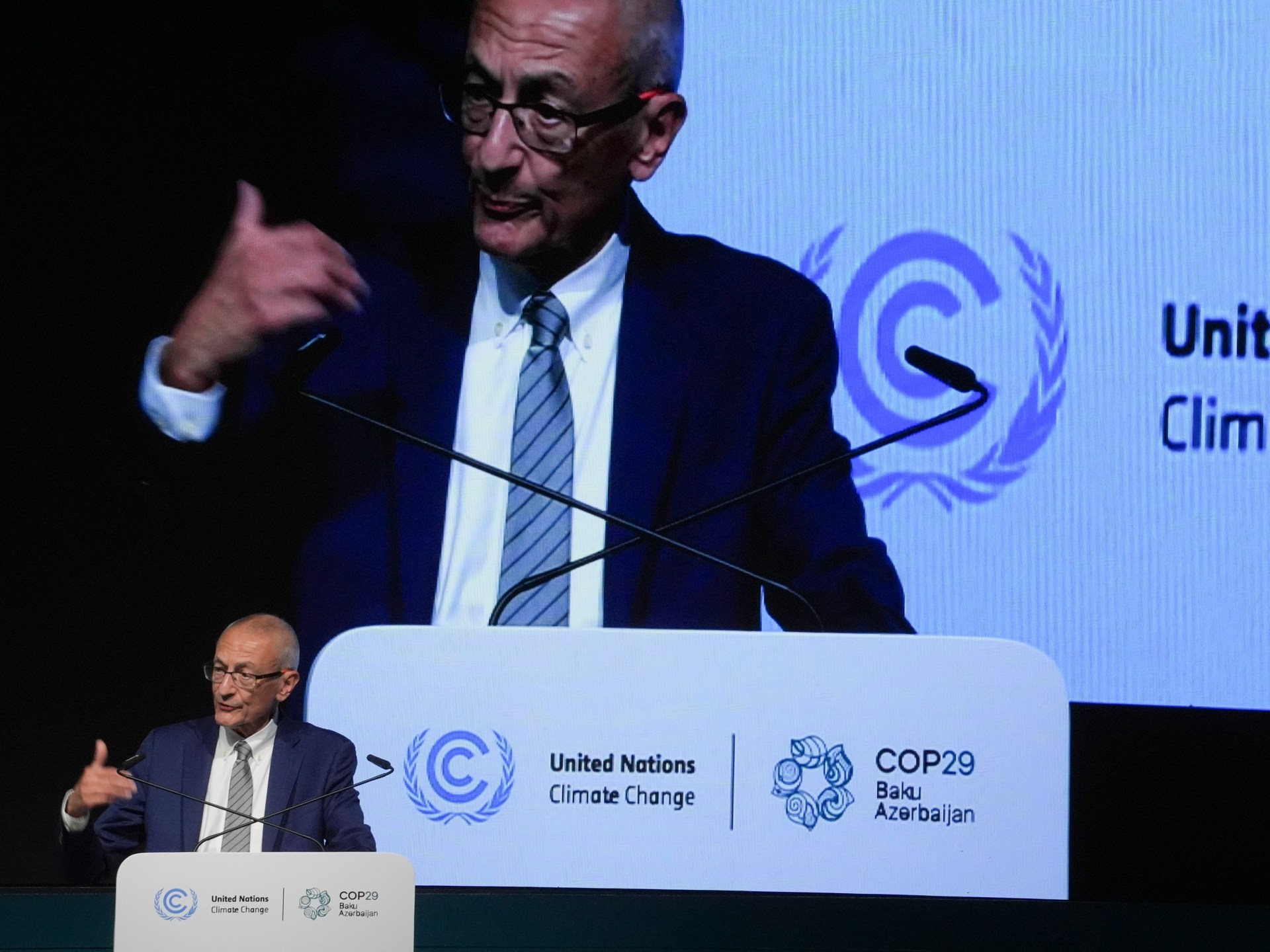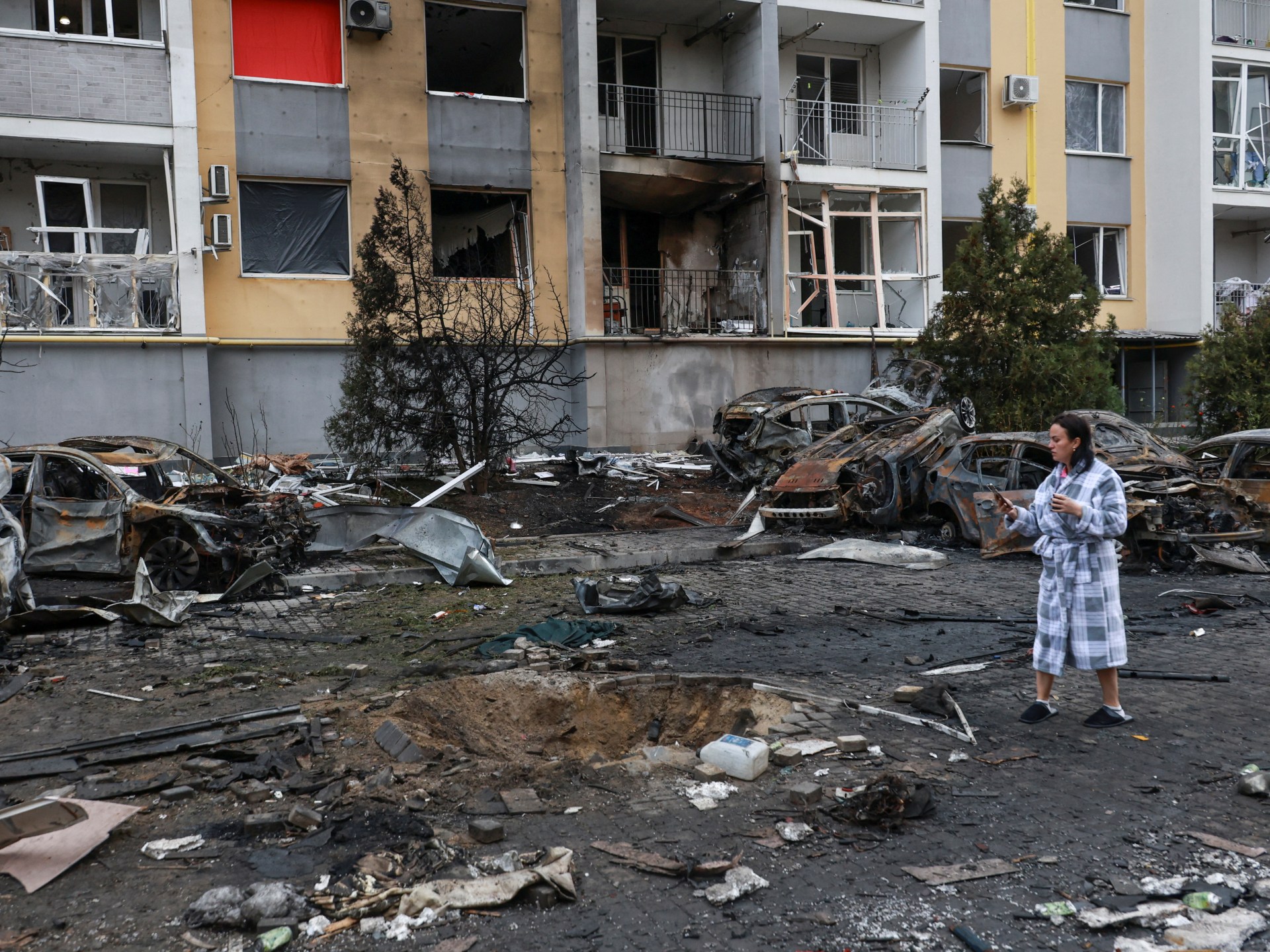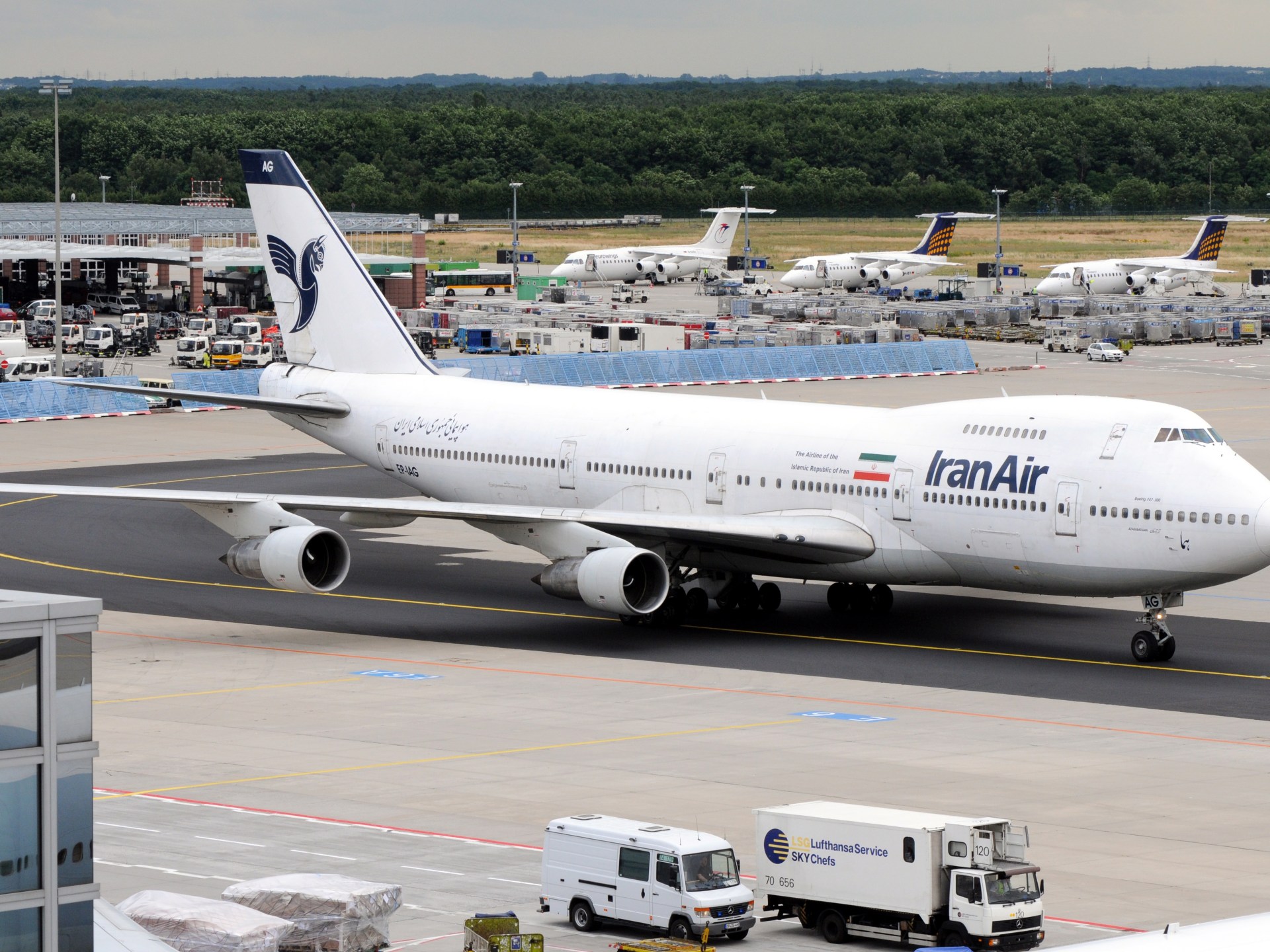
This content originally appeared on Al Jazeera.

Here is the situation on Tuesday, November 26:
Fighting
- Ukraine’s capital Kyiv is continuing to face a sustained Russian drone attack, which has been ongoing since Monday, Mayor Vitali Klitschko has said.
- A Russian missile attack on the northeastern city of Kharkiv injured at least 23 people and damaged more than 40 buildings, Ukrainian officials have said.
- Another missile attack on the southern city of Odesa damaged residential buildings and injured 10 people, according to Ukraine’s Ministry of Internal Affairs.
- A drone attack targeted energy infrastructure in Ukraine’s southern region of Mykolaiv, causing power cuts, while industrial facilities in the southeastern Zaporizhia region were also struck, Ukrainian authorities have said.
- Russia’s Ministry of Defence said on Monday that its forces had shot down eight ballistic missiles fired by Ukraine in the last 24 hours.
- Russia will consider deploying short- and intermediate-range missiles in Asia if the United States deploys such missiles to the same region, Deputy Minister of Foreign Affairs Sergey Ryabkov said.
Sanctions
- The European Union is proposing sanctions on several Chinese firms it claims helped Russian companies develop attack drones deployed against Ukraine, according to documents seen by Bloomberg News.
- The European Commission is also looking to impose restrictions on additional Russian oil tankers to curb Russia’s ability to circumvent existing restrictions, the report added.
- The United Kingdom is imposing its biggest sanctions package against Russia’s shadow fleet yet, targeting 30 vessels, the UK’s Foreign Minister David Lammy said, as he urged G7 allies to equip Ukraine for as long as it needs.
Politics and diplomacy
- Europeans will step up military support for Ukraine, Germany’s Defence Minister Boris Pistorius pledged after talks with his British, French, Italian and Polish counterparts on how to foster defence efforts ahead of US President-elect Donald Trump’s return to the White House.
- Kremlin spokesman Dmitry Peskov said that Trump’s circle was speaking about a potential peace plan for Ukraine, while the current US administration is seeking to escalate the conflict. Peskov’s remarks came after Mike Waltz, Trump’s pick for national security adviser, said the president-elect was “very concerned” about escalation between Russia and Ukraine and that the war must be brought “to a responsible end”.
- The UK and its allies will not be intimidated by Russian cyberthreats into stopping supporting Ukraine, the UK Minister for Intergovernmental Relations Pat McFadden said at NATO’s Cyber Defence Conference in London, urging the alliance to work closely to stay ahead in “the new AI arms race”.
- At that conference, the chair of NATO’s military committee, Dutch Admiral Rob Bauer, urged businesses to be prepared for a wartime scenario and adjust their production and distribution lines accordingly to be less vulnerable to blackmail from countries such as Russia and China.
- Bauer added that while Russia’s land forces are bigger now than at the beginning of Moscow’s full-scale invasion of Ukraine in February 2022, “the quality of those forces has gone down” and they are “not the same threat”.
- Bauer said NATO allies would need to spend much closer to 3 percent of their gross domestic product (GDP) on their militaries to implement the alliance’s new defence plans, as costs will surpass the alliance’s existing 2 percent target.
- Calin Georgescu, a hard-right NATO critic who has praised Russia, is set to face a centre-right opposition leader in a presidential election run-off in Romania, which could undermine its pro-Western stance after a shock outcome in Sunday’s first-round vote.
Related News

11 November 2024
Climate action will continue despite Trump’s return, US envoy tells COP29

26 November 2024
Leaders make final push for plastic pollution treaty at talks in S Korea

09 November 2024
Pentagon allows US military contractors to fix weapons in Ukraine

08 November 2024

